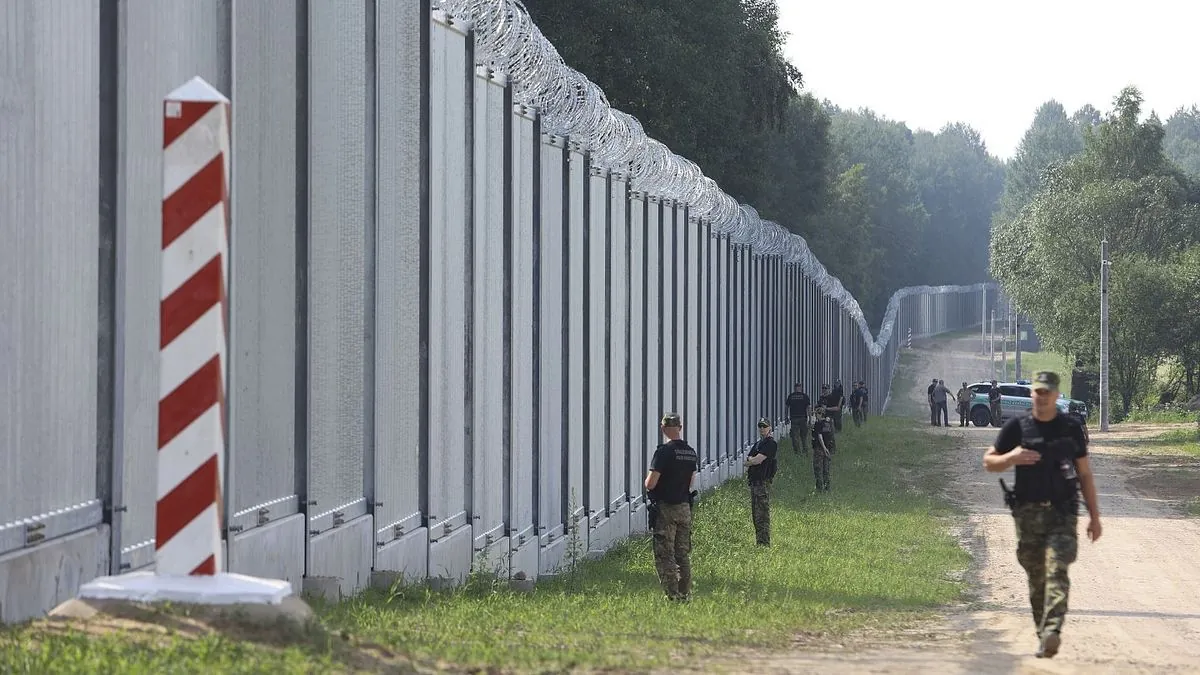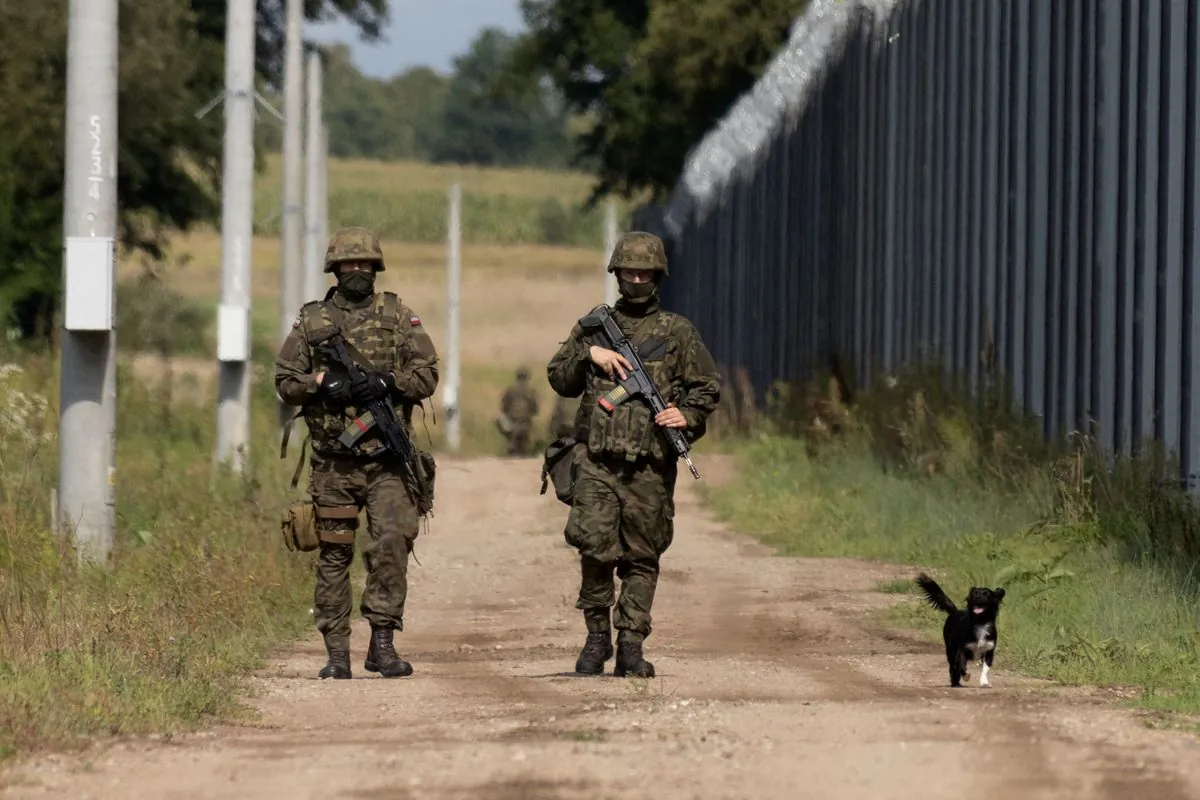Poland Extends Belarus Border Buffer Zone Amid Migration Concerns
Poland prolongs its border buffer zone with Belarus for 90 days, citing a 64% reduction in illegal crossings. The move sparks controversy and calls for increased support in securing the EU's eastern frontier.

Poland has announced a 90-day extension of its buffer zone along the border with Belarus, a measure implemented to address illegal migration concerns. The decision, effective September 11, 2024, comes as the country reports a significant decrease in unauthorized border crossings.
Tomasz Siemoniak, Poland's Interior Minister, stated, "The zone has brought concrete, positive results. It is primarily aimed at people smugglers who pick up people who are smuggled across the border." According to official data, the buffer zone has led to a 64% reduction in illegal border crossing attempts since its reintroduction in June 2024.
The 418 km (260 mi) Belarus-Poland border, which also serves as an external EU frontier, has been a focal point of tension since 2021. At that time, Belarus allegedly began facilitating travel for migrants from the Middle East, creating what the EU termed an orchestrated crisis. In response to these challenges, Poland completed a 5.5-meter high steel wall along the border in June 2022, at a cost of approximately 1.6 billion zlotys ($353 million).

Despite its reported effectiveness, the buffer zone policy has faced criticism from human rights organizations. These groups argue that the measure impedes humanitarian aid efforts, particularly for vulnerable migrants, including women and children, who may be stranded in the border area.
The decision has also ignited political controversy. The nationalist opposition Law and Justice (PiS) party, which governed Poland from 2015 to 2023, has accused the current pro-European coalition government of hypocrisy. They claim the government criticized similar policies while in opposition.
Donald Tusk, Poland's Prime Minister and former President of the European Council, emphasized the need for increased support in securing the eastern frontier. Tusk also expressed criticism towards Germany's decision to tighten controls on its land borders, highlighting the complex dynamics of border management within the Schengen Area.
The situation at the Belarus-Poland border continues to be a significant challenge for the European Union, with implications for regional security, humanitarian concerns, and diplomatic relations. As Poland maintains its stance on border security, the international community watches closely, balancing the need for effective migration management with humanitarian obligations.
"The zone has brought concrete, positive results. It is primarily aimed at people smugglers who pick up people who are smuggled across the border."
As the buffer zone policy extends into its next phase, Poland faces the ongoing task of managing its border effectively while addressing the concerns raised by various stakeholders. The situation remains a testament to the complex interplay of national security, international relations, and humanitarian considerations in the face of global migration challenges.


































